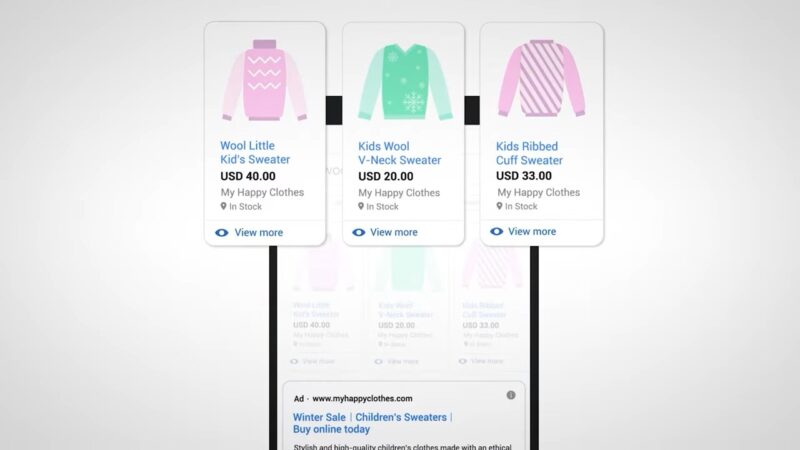What does it take to quit a promising career at one of the most prestigious tech companies in the world? In February 2021, Illinois Institute of Technology alum Vinesh Kannan resigned from his job as a software engineer at Google Shopping, the tech giant’s shopping arm, citing the company’s controversial terminations of Dr. Timnit Gebru and April Curley. Before their respective dismissals, Gebru was the head of Google’s ethical artificial intelligence (AI) research, and Curley has a head of diversity and recruitment. Both were forced out for ethical or workplace disagreements with their managers, and Kannan considered such retaliation against employees unacceptable.
In a Tweet authored on February 3, Kannan stated that “Yesterday was my last day at Google. I left because Google’s mistreatment of [Gebru] and [Curley] crossed a personal red line I wrote down when I started the job. I know I gained a lot from Google, but I also gained a lot from both of their work, and they were wronged.” David Baker, a company director, also resigned over these dismissals.
Kannan graduated from Illinois Tech in May 2019 with a B.S. in Computer Science, afterwards starting at Google Shopping in August 2019. Interestingly, Kannan recalled that Google was the only company to even give him an interview during his senior year job search. Despite a loaded resume, Kannan joked that it took a bit of luck — and a referral from another Illinois Tech alum who worked at Google — to land that interview and eventual position.
He specifically cited Gebru’s previous works and ongoing ethical AI research — including an earlier paper the Stanford alum published on problems facial recognition softwares have with non-white and non-male faces — as a reasons he was excited to apply and eventually work at Google. That prior study was published under lead author Joy Buolamwini as the Gender Shades project.
So, at the end of August 2019, Kannan moved to Pittsburgh, PA and began working at Google Shopping. The Illinois Tech alum relished the fact that he was able to enjoy rewarding, reasonable topics right off the bat. While Kannan remembered being “not very passionate about shopping” itself, he was given interesting work on developing shopping features on Google’s main search page. Notably, he implemented a feature to help users refine their search if they had scrolled to the bottom of the first results page.
Kannan’s salary matched the reputation of his new employers. Jobs in “big tech” have a popular conception of being high prestige and high paying in areas with expensive rent and gorgeous weather. His employment at Google Shopping’s satellite in Pittsburgh, PA may have meant skipping out on the warm weather, but it also came with a slightly lower cost of living than Chicago, IL. In his first year, Kannan started earning $102,000 per year with a $10,500 relocation bonus.
During 2020, which he worked the entirety of, Kannan earned a $106,000 salary with a $23,000 bonus, which includes extra for his high rating on performance evaluations. How lucrative a job is can be an important factor for applicants deciding to quit or not, for ethical reasons or otherwise.
The recent graduate entered Google already holding ethical misgivings about the company. Prior to his employment, Google had become involved in — then, after intense employee pressure, withdrew from — Project Maven, a U.S. Department of Defense program to use AI to improve drone strike accuracy and reduce collateral damage.
Similarly, Kannan was also concerned about Google previously forcing the resignations of employee activists Claire Stapleton and Meredith Whittaker, among others, for organizing against sexual assault within Google, the development of AI technology for U.S. Immigration and Customs Enforcement (ICE), similar AI research for oil and gas companies, and a number of other topics that concerned Google employees.
However, Kannan considered these “aberrations” and still viewed Google as a good actor in tech when he started his employment. A major factor in his faith was their willingness to employ Gebru in the first place, in part due to her impressive work on the Gender Shades project, to conduct Google’s own ethical AI research. Despite this, he still had some concerns heading in.
Before starting his employment at Google, Kannan wrote his concerns into his own ethical redlines: boundaries that describe bad behavior that he would not tolerate as an employee. As quoted from Kannan, the boundaries are as follows:
- Google should not be greedy, choosing to maximize metrics like revenue, engagement at the cost of what users and merchants value.
- Google should not present misleading information to consumers.
- Google should not give preferential treatment to large merchants over small merchants.
- Google should not retaliate against teammates who stand up for something I believe in.
Kannan noted that Google Shopping held up to his ethical redlines during March and April of 2020 — the start of the COVID-19 pandemic — by shutting down deals for fraudulent face masks, toilet paper, and disinfectants.

In the last quarter of 2020, Google crossed one of Kannan’s ethical redlines — retaliation — by forcing out Curley and Gebru. In summary, throughout 2020, Gebru was working through Google’s internal publication process to put out a paper on the environmental, financial, and social impacts of large language learning models, which Google uses extensively.
After the paper was already approved through the normal review process, Gebru’s supervisors, notably the vice president of engineering at Google Research as well as the head of Google AI, asked Gebru to retract her paper, as it did not paint Google’s own language learning models in a sufficiently positive light. Specifically, it did not discuss the possibility for reducing — instead of removing — the potentially harmful outcomes from language learning models.
When Gebru asked to discuss and challenge this retraction, she was told that these changes to improve Google’s portrayal were absolutely non-negotiable. Gebru threatened to resign over the incident, setting a future date of departure if the retraction could not be discussed genuinely. In the meantime, Gebru then emailed the Google Brain Women and Allies group about the demands being made to alter her publication from her supervisors.
In response to this communication, Google told her to leave immediately; since she already threatened future resignation, Google considered this immediate termination over the emails she sent to just be an early acceptance of the resignation relating to research ethics, not an actual firing, making Gebru ineligible for severance. According to Kannan, she was absolutely mistreated and retaliated against for standing up for basic research ethics, crossing Kannan’s fourth boundary. Gebru shared this news in a viral Twitter thread after her dismissal on December 2.
Curley was similarly forced out of Google in 2020, and she similarly shared her experiences in a viral Twitter thread in the wake of Gebru’s departure. Curley, a black woman from Maryland, worked as a diversity recruitment coordinator for Google starting in 2014. Before she joined, Google had never hired a single student from a historically black college or university (HBCU), citing poor culture fit or “‘unfamiliar’ school/university names.”
Her advocacy for hiring students from HBCUs increased the percentage of black employees at Google from 2.4 percent to 3.7 percent. Despite the incredible results, her entire time at Google was spent being shuffled back and forth between different supervisors and departments.
During the summer of 2020, Curley was told by a white supervisor that her Baltimore accent was “intimidating” and that she should disclose it like a “disability” before meeting others, so as to not scare them. Appalled, Curley reported this incident to human resources. When she reported this incident — against a superior — she was placed on a 30-day performance review. Halfway through, when Curley asked if they were planning to keep her or not, she was terminated immediately. Kannan considered this to be crossing the same unethical boundaries that Google crossed with Gebru.
These were redlines that Kannan would not tolerate being crossed. Kannan began looking for new employment immediately after news of these incidents broke, both as a genuine desire for new work and as his own form of protest. It was particularly hurtful for Kannan that this workplace retaliation had happened against Gebru, whose ethical AI research was one of the reasons Kannan considered Google to be a good actor in tech in the first place.
Before committing himself to leaving, Kannan explored opportunities for righting the situation and changing Google from within. He signed a petition that over 5,000 Google employees and academics had signed in protest of Gebru’s departure, but it became clear that nothing would come of it. Kannan was not afraid to have ethical discussions with his team, managers, and coworkers at Google Shopping on their thoughts about the situation.
Responses ranged from upset but disempowered — “I signed the petition, but I don’t have the energy and power to do anything else” — to concerns about jurisdiction — “Gebru worked with Google Research and Google Brain, but we work in Google Shopping” — to ambivalent. These conversations were for Kannan necessary to have before committing to leaving, but the responses he found helped affirm his decision to leave.
Kannan still expressed a degree of guilt surrounding leaving instead of changing Google from the inside, even though these conversations clearly showed his efforts would likely be unproductive.
He later noted that other employees chose to stay and organize through the Alphabet Workers Union.
The Illinois Tech alum took time during his Association for Computing Machinery (ACM) address to encourage everybody to have difficult ethical conversations about their field with their mentors, employers, and potentially employees. Kannan discussed his previous ethical conversations with his Google peers surrounding the Stapleton and Whittaker cases, though recalled that he was met with a wall of apathy and rationalization from his supervisors.
There exists an entire class of managers and private professionals to convince you that the company is doing the right thing, that whatever wrong things they do are for the right reasons, or that even if things are wrong it’s not our place or worth the effort to change it.

Regardless of the answers, difficult ethical conversations with one’s peers are often incredibly productive for young professionals, even if they’re not always productive with others. Most everybody already has some of these ethical redlines, even if they’re unwritten, that are worth exploring through conversations with others.
Kannan left Google Shopping after he had secured a job offer as a software engineer at Nuna, a San Francisco, CA firm devoted to solving problems in the United States healthcare system. According to Kannan, waiting until you have a job offer before leaving a company is a very common industry practice, even when you have significant ethical concerns. Kannan provided the following timeline of this process in the paragraph below.
Kannan decided to leave Google on December 4, 2020. He began applying for jobs afterwards and had his first interview by December 10. He secured his first job offer on December 21, but did not accept an offer until January 8, 2021, after some negotiating.
Despite having secured the offer, Kannan waited until January 19, when he collected his five digit performance review bonus, before putting in his two weeks notice. Nuna pays Kannan upwards of $50,000 per year more than Google, though it will soon require him to relocate to the Bay Area with its increased cost of living.
Though he was able to negotiate an offer before leaving, Kannan understands that employment security — and fear of unemployment or underemployment — could be a major factor in why people choose to stay at jobs they have moral conflicts with. For this reason, Kannan compiled a number of resources for job searching that he shared during his event with the Illinois Tech ACM chapter.
In closing, Kannan expressed how grateful he was to have a network of family, friends, and a number of former professors supporting him through his decision to quit Google, and he encourages anybody going through a similarly large career decision to reach out and do the same.
He specially highlighted the roles professors can play in these dilemmas; with their decades of experience in seeing how ethical issues play out both in their respective fields and academia, they are in a unique position to support students through tough moral choices and make a generation of ethical professionals.
Kannan urges any student or graduate entering into their field to take an afternoon and work on a list of their own ethical redlines — what is permissible and what isn’t. Kannan ended with the following: “If you don’t reflect on your redlines, they will shift, and permit more extreme actions.”

